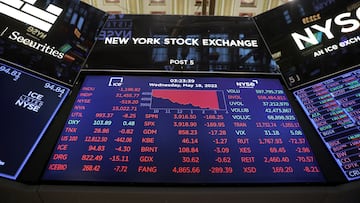The different kinds of stocks explained
If you are ready to invest in the stock market, it would be wise to learn what the different stocks are to determine what would be best for your targets.


You’ve got some expendable cash, and you’re ready to risk your money in the stock market. Experts say it’s important to diversify your portfolio to manage risk. But before you can do that, here are the different kinds of stocks so that you can choose what is best for your financial goals, as well as what is a better fit for the type of investor that you are.
Common stock
Common stock is the most prevalent type of stock. Holders of common stock are typically entitled to voting rights in the company’s decisions and may receive dividends, although these are not guaranteed. Common shareholders also have a claim on assets and earnings, but they are at the end of the line, so to speak, if the company faces bankruptcy or liquidation.
Preferred stock
Preferred stock is a hybrid security that combines features of both stocks and bonds. Preferred shareholders typically don’t have voting rights but receive fixed, regular dividend payments. If the company faces bankruptcy, preferred shareholders have a higher claim on assets than common shareholders. However, they do not have the potential for significant capital appreciation that common shareholders have.
READ ALSO: The city that will pay you up to $15,000 if you move there
PayPal versus Block: Here’s HSBC’s preferred stock play on a fintech turnaround https://t.co/CXR8WsQoDy
— MarketWatch (@MarketWatch) October 13, 2023
Small-cap, mid-cap, and large-cap stocks
Stocks are often categorized based on market capitalization. Small-cap stocks represent smaller companies ($300 million to $2 billion), mid-cap stocks represent medium-sized companies ($2 billion to $10 billion), and large-cap stocks represent the largest and most established companies ($10 billion to $200 billion). These distinctions can impact factors like risk, growth potential, and market dynamics.
Blue-chip stocks
Blue-chip stocks represent shares in well-established, large-cap companies with a history of stable performance. These companies are often considered leaders in their respective industries and are known for their reliability. Examples of blue-chip stocks include companies like Apple, Microsoft, and Coca-Cola. These stocks typically carry less risk than others.
$AZN - AstraZeneca: Buy This Blue-Chip Bargain For A Richer Retirement. https://t.co/ZQygZaiuyg #stocks #markets #economy
— Seeking Alpha (@SeekingAlpha) October 19, 2023
Growth stocks
Growth stocks are shares of companies that are expected to grow at an above-average rate compared to other companies in the market. Investors buy growth stocks in the hope that their value will increase over time. These stocks typically reinvest their earnings into the business rather than paying dividends. This is a good choice for investors with high tolerance for risk.
Foreign stocks
These are shares of companies based in foreign countries. They can be listed on foreign stock exchanges or as American Depositary Receipts (ADRs) on US exchanges.
Value stocks
Value stocks are shares of companies that are considered undervalued based on various financial metrics, such as price-to-earnings ratio or price-to-book ratio. Investors seek value stocks when they believe the market has underestimated the company’s true worth.
Penny stocks
Penny stocks are low-priced, often speculative stocks that trade for less than a few dollars per share. They are typically associated with smaller, riskier companies.
READ ALSO: Netflix reports $2.5 billion in stock buybacks
Special situations stocks
Special situations stocks represent companies undergoing significant events, such as mergers and acquisitions, bankruptcies, or other unique circumstances. These stocks often carry higher risk and potential for significant price swings.
ESG stocks
Related stories
ESG stocks are shares of companies that are recognized for their strong performance in Environmental, Social, and Governance criteria. ESG criteria are a set of non-financial factors that investors use to evaluate and assess a company’s impact on the environment, society, and governance practices. These criteria are used to determine the sustainability and ethical practices of a company. ESG stocks are often considered more responsible and socially conscious investments.
Forests must inform business strategy to prevent billion-dollar risks. 🌲
— CDP (@CDP) October 3, 2023
Learn more: https://t.co/rKF7ba856J
IPO stocks
IPO stands for “Initial Public Offering,” and IPO stocks are shares of a company that have just been made available for public trading for the first time. When a company decides to go public, it means they are transitioning from being a privately held company to becoming publicly traded on a stock exchange. Many investors are attracted to IPO stocks because they represent young, innovative companies with significant growth potential. Investing early in a company’s journey can offer the potential for substantial returns. If you have high risk tolerance, this is for you.

